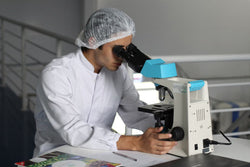

In military service, individuals often face unique challenges and responsibilities, including the potential for deployment to distant and dangerous locations. Amidst the demands of duty, service members may be presented with the opportunity to safeguard their genetic legacy through a practice known as military sperm freezing. This cutting-edge technology not only provides a sense of security for military personnel but also raises ethical, medical, and social questions that warrant exploration.
The Need for Military Sperm Freezing
Deployments, especially to regions with high-security risks, can disrupt personal lives and long-term plans, including the desire to start or expand a family. Recognizing these challenges, military sperm freezing has emerged as a viable solution for service members looking to preserve their fertility before embarking on deployments, training exercises, or facing potential exposure to hazardous environments.
Protecting Future Generations
Military sperm freezing involves the collection, cryopreservation, and storage of sperm samples in specialized facilities. By taking this proactive step, military personnel can ensure that their genetic material remains viable even in the face of uncertainties associated with their service. This safeguards their ability to father children and offers peace of mind to loved ones back home.
The Technology Behind Sperm Freezing
Cryopreservation, the process used in military sperm freezing, involves cooling sperm to extremely low temperatures, typically around -196 degrees Celsius, to halt all biological activity. This effectively puts sperm into a state of suspended animation, allowing it to be stored for an extended period without compromising its viability. Advanced technologies and protocols ensure that the frozen sperm can later be thawed and used in assisted reproductive techniques such as in vitro fertilization (IVF).

Supporting Military Families
Military sperm freezing not only benefits service members but also provides support to military families. It offers a potential lifeline for those facing infertility due to factors such as injury, illness, or prolonged separation. By incorporating family planning options into military healthcare policies, armed forces can demonstrate a commitment to the well-being of their personnel and their families.
Preparing For Sperm Freezing
Sperm mature fully in 70-75 days. That means you have 2-3 months to prepare for sperm donation and freezing. This time is critical to ensure the healthiest sperm are available for freezing and future use. During this time, it is essential to maintain a healthy diet, exercise daily, reduce stress, and get adequate sleep. In addition, supplements containing important nutrients and minerals like Coenzyme-Q, Selenium, Zinc, and Folic Acid can help support healthy sperm while they are developing.
Military sperm freezing represents a groundbreaking advancement in reproductive technology, empowering service members to protect their fertility and family planning aspirations amidst the challenges of military service. As this technology continues to evolve, military institutions, healthcare professionals, and policymakers must work collaboratively to ensure that the benefits of military sperm freezing are accessible to those who serve our nations. In doing so, we honor the sacrifices of military personnel and contribute to preserving their legacies for generations to come.




